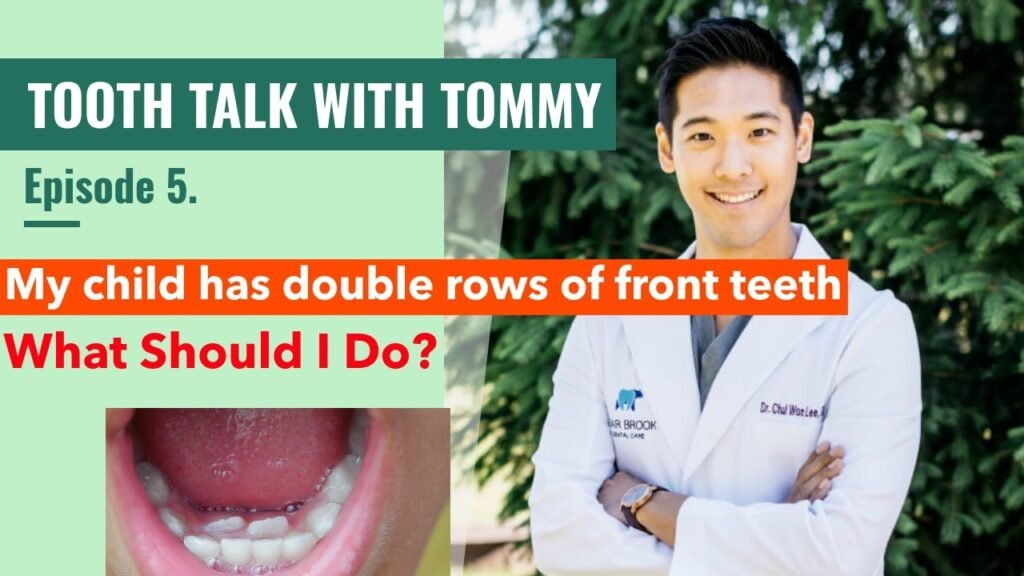Protecting Your Child's Back Teeth: A Guide to Dental Health

Did you know that a child's back teeth, also known as molars, are especially prone to cavities and decay? These teeth play a crucial role in chewing and maintaining proper alignment of the jaw. However, their location and rough surfaces make them difficult to clean, leaving them vulnerable to plaque and bacteria. In this article, we'll explore the importance of caring for children's back teeth and provide tips for keeping them healthy and strong.
At what age do the back molars come in?
Between the ages of 9 and 13, children typically start getting their premolars, followed by their second molars between 11 and 13 years old. The last set of molars, also known as wisdom teeth, usually come in between the ages of 17 and 21, if they come in at all.
Are children's back teeth supposed to come out?
Yes, children's back teeth are supposed to come out. Around the age of six, your child will begin losing their baby teeth, starting with the lower and upper front teeth. This is then followed by the eruption of the first big adult teeth at the back, known as the first permanent molars. The last baby tooth is usually lost around the age of 12 years. It's important to monitor this process and encourage good oral hygiene to ensure the smooth transition from baby teeth to permanent teeth.
When do children's molars fall out?
Children's molars typically fall out between the ages of 9 and 11. The last teeth to be lost are the canines and second molars. Canine teeth usually fall out between 9 and 12 years old, while primary second molars are shed between 10 and 12 years of age. It is important to monitor the progression of tooth loss during this time to ensure proper dental development.
Parents should be aware that the shedding of molars is a natural part of a child's growth and development. Keeping track of when these teeth fall out can help determine if there are any underlying dental issues that need to be addressed. By maintaining regular dental check-ups and practicing good oral hygiene habits, parents can help ensure their child's teeth are healthy and strong as they transition from primary to permanent dentition.
Safeguarding Smiles: Essential Tips for Back Tooth Care
When it comes to safeguarding smiles, don't forget about the importance of back tooth care. These hard-to-reach molars play a crucial role in chewing and maintaining overall oral health. To keep them in top condition, be sure to brush and floss thoroughly, paying extra attention to the back of your mouth. Additionally, consider using a mouthwash to help eliminate bacteria and prevent decay in those tricky-to-reach areas.
Remember, neglecting back tooth care can lead to serious dental issues down the line. By following these essential tips, you can ensure that your smile stays healthy and bright for years to come. So don't overlook the importance of caring for your back teeth – your oral health will thank you!
Building Healthy Habits: A Parent's Guide to Dental Wellness
In "Building Healthy Habits: A Parent's Guide to Dental Wellness," parents can learn how to instill good oral hygiene practices in their children from a young age. By emphasizing the importance of regular brushing, flossing, and dental check-ups, parents can help prevent cavities and other dental issues in their kids. Teaching children the value of taking care of their teeth can set them up for a lifetime of good oral health.
In addition to teaching children about oral hygiene, "Building Healthy Habits: A Parent's Guide to Dental Wellness" also emphasizes the importance of modeling good dental habits as a parent. By showing children that you prioritize your own dental health, you can lead by example and encourage them to do the same. Creating a positive and consistent dental routine in the household can help ensure that children grow up with a strong foundation for maintaining healthy teeth and gums.
Overall, it is crucial to prioritize the health of children's back teeth as they play a significant role in their overall well-being and development. By emphasizing good oral hygiene habits, regular dental check-ups, and preventive measures, parents and caregivers can ensure that their children maintain healthy and strong back teeth for years to come. Investing in proper dental care at a young age can lead to a lifetime of healthy smiles and improved quality of life. So, let's make the health of children's back teeth a top priority and set them up for a lifetime of dental wellness.